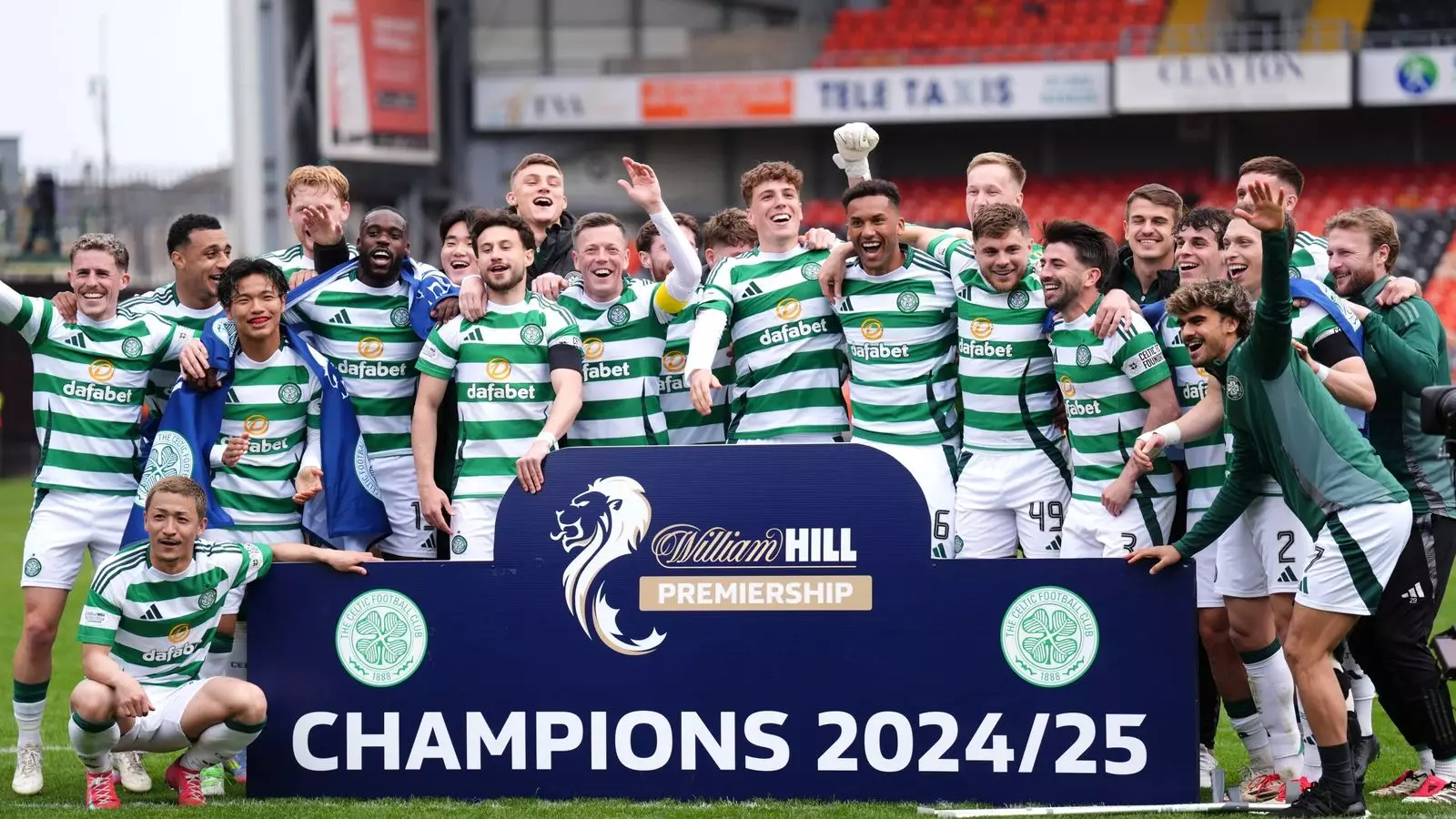Celtic Football Club, one of the most storied teams in Scottish football, recently clinched the Scottish Premiership title for the fourth consecutive year. This victory not only reinforces their dominance within the league, evidenced by 13 championships in 14 years, but also highlights their sustained competitive edge under the leadership of manager Brendan Rodgers. Amidst this backdrop of sporting excellence, however, the day was marked by sharp protests from fans regarding escalating ticket prices, sparking a nuanced discussion about accessibility in sports.
The Bhoys, as Celtic is affectionately known, have consistently outperformed their rivals, most notably Rangers, who sit a staggering 18 points behind. This glaring disparity in performance raises questions about the health of the league itself. As Celtic prepares to vie for yet another treble—a feat they could accomplish for the sixth time in nine seasons—it is crucial to scrutinize the underlying dynamics of this triumph. Are these achievements an indication of exceptional talent and management, or do they reflect a broader systemic imbalance within Scottish football?
Protests Amidst Celebration
The juxtaposition of Celtic’s on-field accomplishments with fan protests paints a complex picture of contemporary football. During the title-clinching match against Dundee United, a section of the Celtic supporters decided to express their dissatisfaction by throwing tangerines onto the pitch. The protest was an emblematic critique of Dundee United’s pricing strategy, which charged visiting fans exorbitant fees for tickets—a stark contrast to the much lower prices for local supporters. This incident, laced with irony as Dundee United’s nickname is “The Tangerines,” reveals a growing frustration among fans who feel that commercial interests have superseded the passion and accessibility that the game should embody.
The protest not only drew attention to high ticket prices but also resonated with a wider audience, sparking discussions on social media. One particularly pointed comment humorously noted that there were “more tangerines in this picture than Rangers have won trophies in the last 15 years.” This biting criticism encapsulates the rivalry’s intensity but also underscores Celtic’s apparent inability to be fully content with its own triumphs. The fans’ protests indicate a community seeking to reclaim the sport from the grip of commodification.
A Tribute Unfolds Amidst the Drama
The day also bore somber significance, coinciding with the funeral of Pope Francis, an event marked by a minute of silence observed by both teams and supporters. This poignant moment was punctuated by the fans’ efforts to honor the Pope, who had personally met with Celtic players only months prior. The juxtaposition of joyous celebration and respectful mourning offers a glimpse into the multifaceted role of football in society. While the triumph on the pitch is undeniably significant, it exists concurrently with communal values, traditions, and emotional connections that extend beyond mere scores.
Celtic’s ability to galvanize its fanbase around important cultural and social issues speaks volumes about the identity of the club and its supporters. The banner proclaiming “Stop pricing fans out of football” is a rallying cry for a broader movement within sports, advocating for fair access irrespective of socioeconomic status. This ongoing struggle highlights the paradox of modern football, where soaring ticket prices threaten to alienate the very people who constitute the heart and soul of the sport.
Reflections on Ambition and Responsibility
Manager Brendan Rodgers has articulated an unwavering commitment to winning, yet the context of his achievements cannot be entirely separated from the pressing concerns voiced by the fanbase. His assertion that the team must maintain its motivation and hunger raises important questions: Is ambition indeed the unassailable value of sports, or must it exist alongside an ethical framework that prioritizes inclusivity? In his desire to build a legacy, Rodgers must navigate not only the metrics of success defined by trophies but also the expectations of supporters who demand that their voices and experiences be heard.
As Celtic gears up to potentially capture yet another treble, it also stands at a crossroads that embodies a dilemma faced by many clubs today: the struggle between commercial success and community engagement. In a thriving sports culture, the duality of triumph and protest serves as an ongoing dialogue—one that champions the necessity of accessibility within a sport too often ensnared by financial greed. While Celtic revels in its victories, it must also heed the calls for equilibrium, lest the fruits of their labor continue to slip out of reach for their most ardent supporters.

